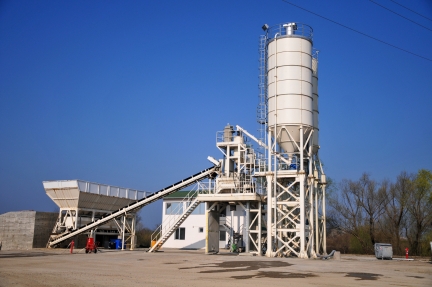Air emissions

A hot mix asphalt plant in Minnesota must get an air emissions permit if:
- its potential air emissions are over a certain level
- it is required to follow a federal New Source Performance Standard (NSPS)
Check your emissions
Use this calculator to see if you need an air permit, which air permit to apply for, and whether federal rules affect you:
The calculator covers the following NSPS that affect the need for an air permit:
- I – Requirements for Hot Mix Asphalt Facilities
- OOO – Requirements for nonmetallic mineral processing — apply only to plants that have on-site crushing or grinding
- IIII – Requirements for Compression Ignition Engines
- JJJJ – Requirements for Stationary Spark Engines
Dust
Dust pollution is important to control because it can negatively affect product quality, employee health and safety, and impacts on the local community. Minimize dust using best practices:
- limit drop heights of materials being transferred to stockpiles, bins, or conveyors
- cover or water aggregate stockpiles
- keep stockpiles as compact as possible
- cover conveyors
- leave empty space at the top of unenclosed aggregate storage bins
- routinely inspect and maintain air pollution control equipment such as ducts, connections, housings, pressure gauges, temperature indicators, and flow gauges
Fugitive road dust pollution can be a problem. Minimize dust on haul roads by limiting truck speeds, watering unpaved roadways, and watering or sweeping paved roadways.
Compliance tools
See the compliance page for more information on hot mix asphalt operating practices, inspections, maintenance, recordkeeping, and air permit due dates.
Use the compliance calendar as a free tool to help you stay in compliance with recordkeeping and reporting if your business has a registration Option D air permit or a nonmetallic mining general permit.
Hazardous waste
You need a hazardous waste identification number if your business produces any amount of hazardous waste.
Businesses generating most types of hazardous waste are required to report annually, pay a fee, and obtain a license for the subsequent year. Facilities in Anoka, Carver, Dakota, Hennepin, Ramsey, Scott, or Washington County are licensed and inspected by their county. Facilities in greater Minnesota are licensed and inspected by the MPCA. If you produce only small amounts of hazardous waste, you probably qualify as a very small quality generator:
Annual hazardous waste training is required for businesses that generate 220 pounds or more of hazardous waste a month. Learn more: Hazardous waste. See the hazardous waste identification and management page for information on managing specific hazardous wastes, such as antifreeze, lead-acid batteries, solvents, waste tires, used oil, and much more.
Hazardous waste due dates
| Requirement | Due date |
|---|---|
| Hazardous waste generators fee | Mailed to license holders in first quarter, due date on invoice |
| License application | Due August 15 for Greater Minnesota businesses; Twin Cities metro businesses: contact your county |
Stormwater and wastewater
Hot mix asphalt facilities, including portable plants, must have a permit for stormwater and wastewater activities. Any wastewater activities require the nonmetallic mining general permit (not to be confused with the air permit for nonmetallic mining that hot mix plants can't use). However, if wastewater is discharged to surface waters, you must have an individual NPDES/SDS permit.
Water permit due dates
| Requirement | Due date |
|---|---|
| Industrial stormwater general permit quarterly sampling | Jan. 21, April 21, July 21, and Oct. 21 |
| Industrial stormwater general permit annual reporting | March 31 |
| Discharge monitoring reports for MNG49 general permit for non-metallic mining | January 21, April 21, July 21, and October 21 |
Tanks
Asphalt cement aboveground storage tanks have specific requirements and exemptions due to the high viscosity of asphalt cement. Learn more:
Local regulation
Be sure to check with your county, city, and township to see if they have any additional requirements.
Compliance audit checklists
Beyond compliance
General best management practices
- Noise. Choose hours of operation to minimize noise impact to surrounding properties.
- Odor. Bad odors can create health and/or compliance problems. Invest in asphalt odor control technologies and products to reduce odors.
- Tank and chemical storage areas. Routinely inspect for leaks and ensure proper maintenance of fuel tanks and chemical storage areas. Check the containment to ensure it is in good condition.
- Wetlands. When choosing a site and planning your operations, identify nearby wetlands to minimize impact by not disturbing wetlands and not allowing untreated water and runoff into wetlands.
- Save energy by feeding your dryer aggregate with less moisture, and insulating tanks, drums, and long runs of pipe. Cover your aggregate pile or, if that is not possible, try to drain it to the north so the sun will dry the south side, and take your aggregate from the south side of the pile. Consider investing in an infrared camera to help you identify heat leaks. Repair heat leaks to save energy and keep energy costs down.
- Baghouse dust. Dust generated from asphalt plants is commonly added to hot mix asphalt paving mixtures. A fact sheet with more information is available from the Federal Highway Administration.